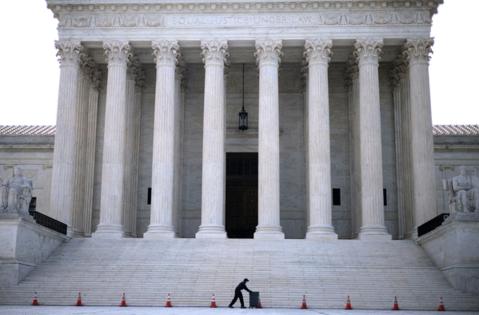Supreme Court to hear long-running copyright case involving Cox Communications
Published in Business News
The U.S. Supreme Court has agreed to hear a major copyright case involving Georgia-based Cox Communications and major record labels that could have profound implications for trademarked works, liability for infringement, as well as internet access.
At issue is a 2018 lawsuit filed by Sony and other record labels asserting Cox should be held responsible for customers who allegedly committed copyright infringement a decade ago by illegally downloading music. A federal jury in Virginia in 2019 found in favor of Sony, Universal and other music publishers that claimed Cox, one of the nation’s largest internet service providers, failed to adequately prevent its customers from illegally downloading and sharing music.
In February 2024, a federal appeals court tossed the $1 billion jury verdict, saying the broadband provider did not profit from the actions of subscribers who allegedly pirated music.
In that ruling, however, the appellate judges upheld another part of the verdict in which the original trial jury found Cox bore some responsibility for not safeguarding against illegal behavior by its broadband customers. The appeals court panel sent the case back to a lower court for a trial on damages.
Last August, Cox sought Supreme Court review, contending the appellate court’s ruling threatens internet access nationwide and carries huge ramifications for Americans and the economy because the company said service providers might be compelled to end internet access for some customers for a small number of cases of infringement.
The case will be heard during the high court’s next term, which begins in October.
In seeking Supreme Court review, Cox told the justices that if the current appeals court panel ruling stands, imposing liability for the acts of customers means internet providers would need to terminate service to internet connections “previously used for infringement” or face huge monetary penalties if infringement happens again.
“The question of who is responsible for online copyright infringement carries immense public implications, affecting the interests of rights owners, businesses and users on a pervasive scale,” lawyers for Cox wrote in the petition for cert.
At the same time, copyrighted work has extensive legal protections for content creators.
A Supreme Court decision in the case could better define who bears liability for copyright infringement, how the owners of content are protected and how internet service providers police customers’ activity online.
“We are pleased the U.S. Supreme Court has decided to address these significant copyright issues that could jeopardize internet access for all Americans and fundamentally change how internet service providers manage their networks,” Cox spokesman Todd Smith said Monday in a news release. “Today’s development supports our goal of protecting consumers, preserving open internet access, and ensuring that broadband remains a reliable resource for the communities we serve. We look forward to presenting our arguments to the Court.”
An attorney for Sony did not immediately respond to a request for comment.
In a statement, the Recording Industry Association of America said under the Digital Millennium Copyright Act, Congress gave internet providers immunity from financial liability “if they act with a modicum of responsibility — namely, that they impose real consequences on users who repeatedly violate creators’ rights — an unprecedented approach by Congress intended to demonstrate its commitment to responsible technological innovation. Unfortunately, Cox breached its part of that bargain."
“We are confident that on full review of the record, the Court — like the trial and appellate courts did before it — will find that Cox’s willful failure to follow well-settled law contributed to massive infringement of the plaintiffs’ copyrights and will return the case to the trial court for final determination of damages,” the RIAA statement said.
Cox Communications is owned by Cox Enterprises, which also owns The Atlanta Journal-Constitution.
In May, U.S. Solicitor General D. John Sauer, who represents the federal government before the Supreme Court, urged the justices in a friend of the court brief to take up the case, specifically some of the questions raised by Cox.
During the 2010s, the music industry sent thousands of notices to internet service providers such as Cox about suspected music piracy by its customers. Record companies ultimately filed several suits and won judgments, though substantially smaller than the initial Cox case, against internet providers, including Frontier Communications and Grande Communications.
At the time of the initial litigation, record labels bet big on selling paid digital downloads, and fighting piracy was key to protecting that business. Since that time, however, music streaming services have emerged and now dominate the market for digital distribution.
The record labels alleged Cox customers illegally downloaded more than 10,000 songs and accused the broadband company of not having adequate safeguards. Cox has defended its anti-piracy protocols as well as its customer privacy protections.
If internet providers face such steep penalties for the actions of customers, it could lead to the loss of internet service to some customers, Cox has argued. The harm from potential loss of internet access is more acute in areas with fewer providers, the company contends.
“Imposing liability on providers merely because they continue providing service after receiving allegations of infringement at a given IP address will have dangerous and drastic consequences,” Cox said in its petition.
©2025 The Atlanta Journal-Constitution. Visit at ajc.com. Distributed by Tribune Content Agency, LLC.












Comments